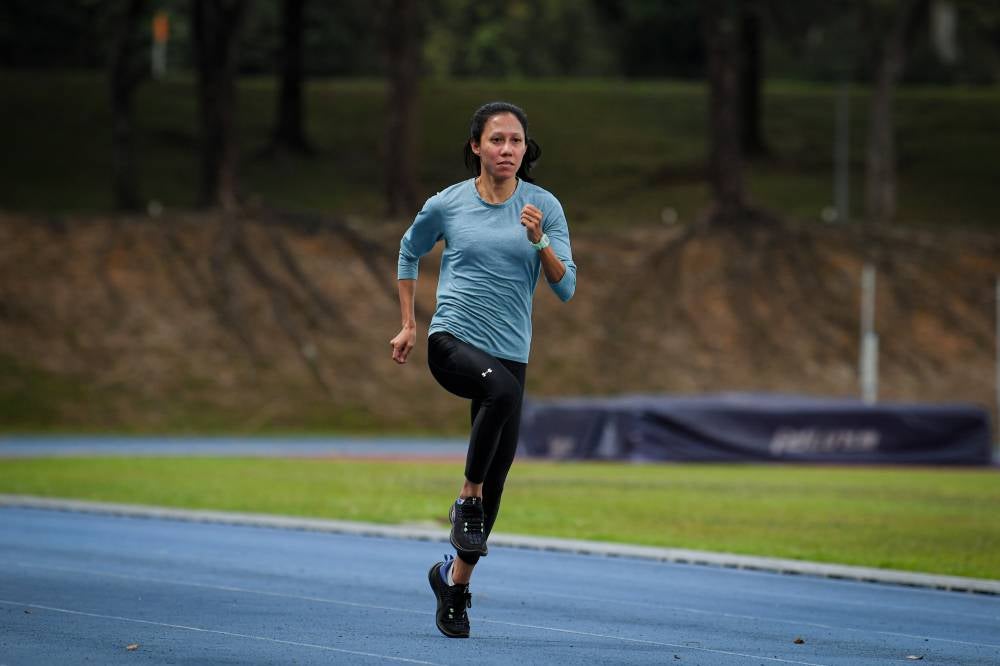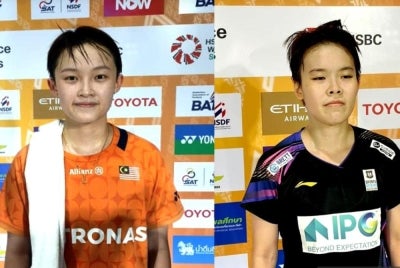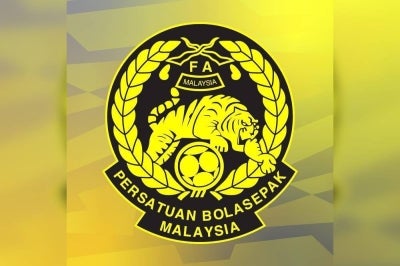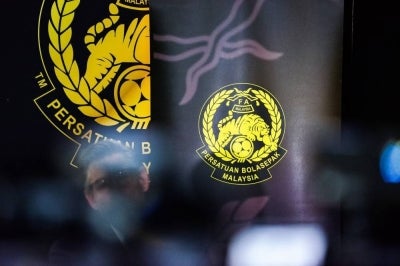AI sparks sports revolution
For sprinter Zaidatul Husniah Zulkifli, she acknowledges that AI technology through the use of a smart watch has greatly helped her maintain her performance.

KUALA LUMPUR - The rapid advancement of digital transformation today requires nations to adapt artificial intelligence (AI) technology to remain competitive.
The use of AI is seen not as an option but almost a necessity to prevent nations or societies from falling behind in this modern and sophisticated era.
AI, powered by the ability of computer systems to perform tasks typically done by humans, relies on algorithms to analyse vast amounts of data needed for optimal performance.
This trend extends to sports, where AI technology is increasingly being used not just by teams but also by athletes to enhance their performance.
From devices to applications, it is undeniable that the use of AI, often undetectable by the human eye, is now changing the global sports landscape.
For sprinter Zaidatul Husniah Zulkifli, she acknowledges that AI technology through the use of a smart watch has greatly helped her maintain her performance as she enters her 31st year.
Zaidatul, affectionately known as Adeq, said she has relied heavily on a smart watch from a leading Chinese brand since last year to optimise her rest periods during training, whether at the gym or on the track.
"I received this smart watch as a reward for winning bronze in the women's 4x100 metres at the Hangzhou 2022 Asian Games, and since then, I've been using this device, especially during training sessions.
"Since the smart watch can read my heart rate, it notifies me of any changes and such. Interestingly, the smart watch also alerts me if I sit or stand too long, reminding me to resume training,” she told Bernama.
The women's 100m national record holder said the device also provides guidance on using rest periods effectively after completing runs according to set distances.
""Every time I run 150m, for instance, the watch informs me of how long I need to rest, such as eight minutes before continuing with training,” she said.
The Kedah-born athlete said that her current smart watch is the best sports device she has ever owned, as it not only helps her manage her time but also saving charging time with a battery life of six days compared to another similar device she owns from a different brand, which only lasts one day.
Meanwhile, former Harimau Malaya head coach Tan Cheng Hoe admitted that the emergence of technology devices powered by AI in the current global sports landscape has been proven to simplify coaches' decision-making both on and off the field.
According to Cheng Hoe, some equipment he has used includes GPS vests and other devices for monitoring player performance, condition, and fitness.
He noted that the data collected is crucial to ensure that all decisions made benefit not only the individual players but also the team as a whole.
"Thirty years ago, we relied on players’ facial expressions to gauge fatigue, but now we can monitor fitness levels using GPS trackers.
"I don’t use AI 100 percent but employ it to gather player data, especially during training sessions and match days,” he said.
Cheng Hoe said that the data obtained allows him to plan training sessions more effectively to ensure his team is at its best.
"But we also can’t rely solely on AI because it only serves as a guide; the actual insight comes from the coach himself,” he added.
Former national men's hockey coach A. Arul Selvaraj said live video assistance technology during matches when he led the Speedy Tigers helped him analyse players’ performance on the pitch.
Although there is an AI element in the technology, he still relies on human input to monitor the video to ensure that the decisions made are precise and effective.
"In hockey (in Malaysia), I am unsure how extensively AI is used, but I have mostly used GPS tracking and heart rate monitoring systems,” he said.
Arul Selvaraj, who now resides in Ireland, revealed that some hockey clubs there have begun using more advanced AI technology compared to what is available in Malaysia.
He said that technology used in Ireland through match video recordings not only tracks players' mistakes but also ball movement.
However, the former UniKL hockey team coach noted that the use of AI in hockey at the international level is not as advanced compared to football, where some teams in Belgium have cameras installed throughout stadiums to monitor movements and conduct live analysis of players.
While acknowledging the benefits of technology, Arul Selvaraj, echoing Cheng Hoe’s view, said these tools cannot be fully relied on, as their effectiveness still depends on the coach’s expertise and how players adapt to decisions, including tactical changes, to achieve positive outcomes in matches. - BERNAMA
Download Sinar Daily application.Click Here!














